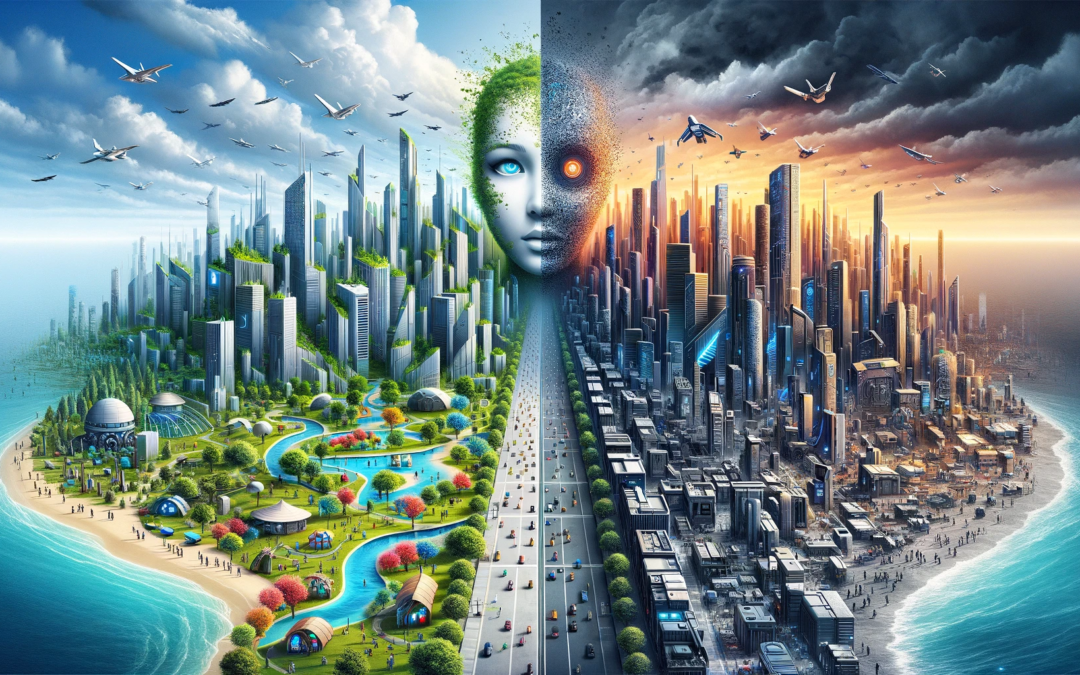In the realm of technological evolution, one concept that often garners both intrigue and apprehension is predictive programming. This idea posits that media—be it films, books, or television shows—can be used as a tool to prepare the public psychologically for future societal changes, particularly those involving technology. When considering the burgeoning field of artificial intelligence (AI), the concept of predictive programming takes on a profound significance. We find ourselves at a crossroads, with the potential for a future society influenced or even dominated by AI. This article delves into the nuances of predictive programming in the context of AI, exploring its implications, ethical considerations, and the balance between utopian dreams and dystopian fears.
The Mechanism of Predictive Programming
Predictive programming operates on a subtle yet impactful premise: expose the public to concepts or ideas through entertainment and media, making them familiar and, to some extent, normalized. When these ideas eventually materialize in reality, the public is less resistant, having been unconsciously acclimatized to them. In the context of AI, science fiction has long been a conduit for such programming. Films like “Blade Runner,” “The Matrix,” and “Ex Machina” have not only entertained but also seeded ideas about intelligent machines, their potential impact on society, and ethical dilemmas they might pose.
The Role of AI in Predictive Programming
AI’s portrayal in media has been dualistic, often oscillating between the helper and the harbinger. On one hand, AI is shown as a benevolent force, enhancing human capabilities and offering solutions to complex problems. On the other, it’s depicted as a malevolent entity, usurping human control and steering society towards a dystopian future. This dichotomy in representation is crucial in shaping public perception and acceptance of AI as it evolves.
Steering Towards a Dystopian Society?
A critical concern with predictive programming in the context of AI is the potential steering of society towards a dystopian future. By repeatedly exposing the public to themes of AI dominance and the erosion of human autonomy, there’s a risk of desensitizing individuals to the genuine threats posed by unchecked AI development. This could lead to a fatalistic acceptance of a future where AI overpowers human control, influencing public and policy attitudes towards AI development and regulation.
Ethical Considerations
The ethics of using media as a tool for predictive programming, especially in the sphere of AI, are complex. It raises questions about free will, manipulation of public opinion, and the responsibility of content creators. Should media be used to acclimatize society to technological changes, or should it remain a neutral ground? The answer to this isn’t straightforward, as it intertwines with notions of artistic freedom, censorship, and societal responsibility.
Balancing Utopian Dreams and Dystopian Fears
As we venture further into the AI era, finding a balance between fostering technological advancement and safeguarding against dystopian outcomes becomes crucial. Predictive programming, whether intentional or a byproduct of artistic exploration, plays a role in this balancing act. It’s essential to encourage narratives that not only caution against the perils of AI but also envision positive futures, where AI enhances human life without diminishing our essence.
In conclusion, predictive programming’s role in introducing AI technologies and shaping societal perspectives is a double-edged sword. It has the power to ease the transition into an AI-integrated future but also bears the risk of leading society down a path of passive acceptance of dystopian outcomes. As we grapple with these possibilities, the ethical responsibility falls on both creators and consumers of media to engage critically with AI narratives, fostering a future where technology is a tool for enhancement rather than domination.










